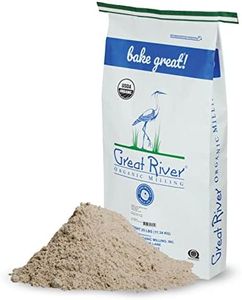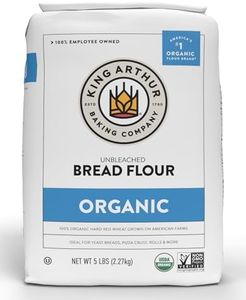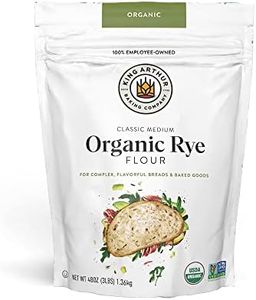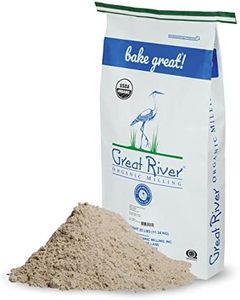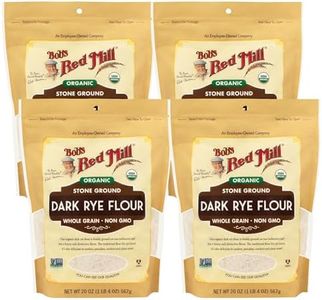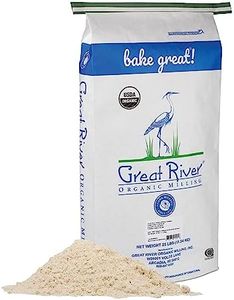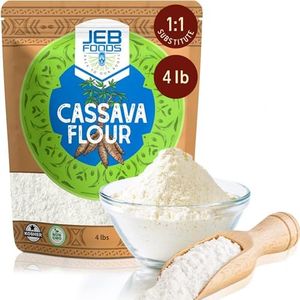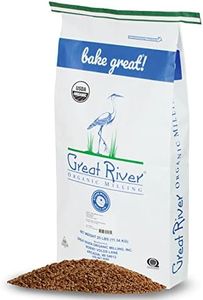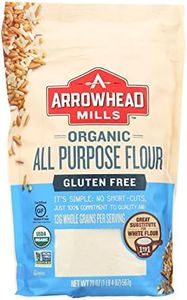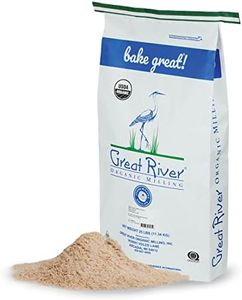Buying Guide for the Best Organic Flour Mills
Choosing the right organic flour mill can be a rewarding experience, especially if you enjoy baking or cooking with fresh, high-quality ingredients. Organic flour mills are designed to grind grains into flour while preserving the nutrients and flavors. When selecting an organic flour mill, it's important to consider several key specifications to ensure you get the best fit for your needs. Here are some important factors to consider and how to navigate them.Grinding MechanismThe grinding mechanism is the part of the mill that actually grinds the grains into flour. This is important because it affects the texture and quality of the flour. There are different types of grinding mechanisms, such as stone burr, steel burr, and impact mills. Stone burr mills are known for producing very fine flour and preserving the nutrients, making them ideal for bakers who want high-quality flour. Steel burr mills are more durable and can handle a wider variety of grains, but they may not produce as fine a flour. Impact mills are fast and efficient, but they can generate heat which might affect the nutrient content. Choose a grinding mechanism based on the type of flour you want to produce and the grains you plan to use.
CapacityCapacity refers to how much grain the mill can process at one time. This is important because it determines how much flour you can produce in a single session. Mills with smaller capacities are suitable for occasional use or small batches, while larger capacities are better for frequent use or larger quantities. If you bake often or in large quantities, a mill with a higher capacity will save you time and effort. Consider your baking habits and choose a capacity that matches your needs.
MaterialThe material of the mill affects its durability and performance. Common materials include wood, stainless steel, and plastic. Wooden mills are aesthetically pleasing and can be very durable, but they may require more maintenance. Stainless steel mills are highly durable, easy to clean, and resistant to rust, making them a good choice for frequent use. Plastic mills are lightweight and affordable, but they may not be as durable as wood or stainless steel. Choose a material based on how often you plan to use the mill and your preference for maintenance and durability.
AdjustabilityAdjustability refers to the ability to change the coarseness or fineness of the flour. This is important because different recipes may require different textures of flour. Some mills offer multiple settings for different levels of coarseness, allowing you to produce anything from fine pastry flour to coarse meal. If you enjoy experimenting with different recipes, look for a mill with a wide range of adjustability. This will give you the flexibility to produce the perfect flour for any dish.
Ease of UseEase of use is about how simple and convenient the mill is to operate. This includes factors like how easy it is to load grains, adjust settings, and clean the mill. A user-friendly mill will save you time and frustration, especially if you plan to use it frequently. Look for features like clear instructions, easy-to-turn handles, and removable parts for cleaning. Consider your own comfort and convenience when choosing a mill, and opt for one that fits your level of experience and ease of use.
Power SourceThe power source of the mill can be manual or electric. Manual mills require physical effort to grind the grains, which can be a good workout and give you more control over the grinding process. They are also more portable and can be used anywhere. Electric mills are more convenient and can grind larger quantities of grain quickly and with less effort. If you prefer a hands-on approach and don't mind the physical effort, a manual mill might be right for you. If you want convenience and speed, an electric mill is a better choice.

